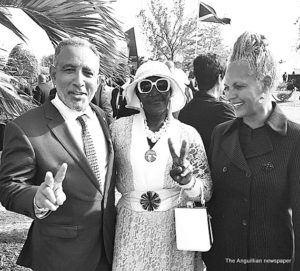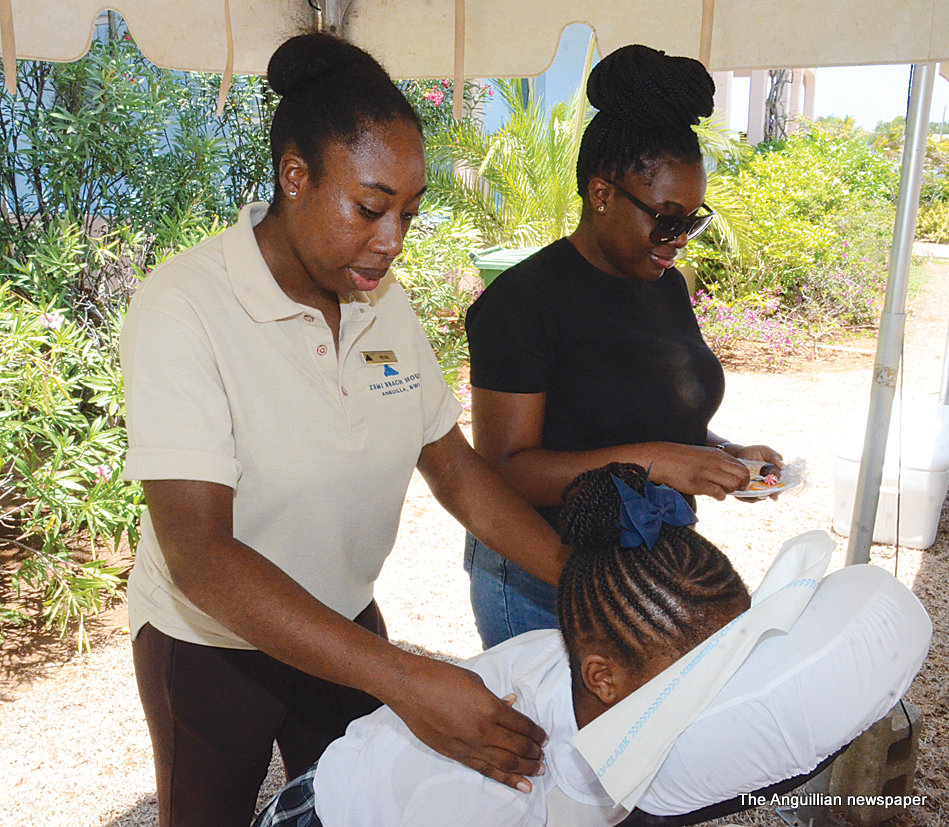
On 28th May 2019 I received word that the Most Hon. Edward Phillip George Seaga, former Prime Minister of Jamaica and Political Leader of the Jamaica Labour Party had passed away. Later that same day, in our House of Assembly here in Anguilla, I spoke of his passing and requested that a moment of silence be observed to honour this true Caribbean leader and icon. I am grateful to the Speaker and other members of the House of Assembly who granted this request.
I recall the first time I met Edward Seaga. It was in 1984. I was a student at the University of the West Indies Mona Campus and was invited to a special dinner reception, where I sat at a table in the presence of this great leader. By that time, Edward Seaga was already well entrenched in the political system of Jamaica. At age 29, he was the youngest person in the history of his country to be appointed to the Upper House of the Legislative Council in 1959. In 1961, Seaga contributed to the drafting of the Jamaica constitution. One year later, post-independence, Seaga was elected by the people of West Kingston to serve as their Parliamentary Representative, a position which he held for 43 consecutive years until he retired from active politics. As Prime Minister, from 1980 to 1989, Seaga ushered in a period of robust economic growth and prosperity for the people of Jamaica, overturning the socialist policies of the former administration.
Seaga was described by many as a man of the people; a representative who ensured that the decisions made and the policies enacted were designed to create a pathway for the “have-nots” to join the ranks of the “haves”.
The establishment of the Human Employment and Resource Training (HEART) Trust, the Learning for Earning Activity Programme (LEAP) for street children, and the Programme for Advancement of Early Childhood Education (PACE) are some of his many crowning achievements, creating pathways for upward social mobility for the poorer class. Seaga’s social transformation programmes centred on the well-known proverb: “Give a man a fish, and you feed him for a day. Teach a man to fish and you feed him for a lifetime.”
Seaga’s love for music and the Arts did not go unnoticed. External to his personal commitment to Jamaica’s early music industry, Seaga also contributed significantly to the National Dance Theatre Company (NDTC) as its founding patron, and stressed the importance and preservation of Jamaica’s rich cultural heritage.
It was indeed my honour and privilege to attend the funeral of the late Edward Seaga in Kingston, Jamaica on Sunday June 23rd 2019. To be in the company of so many Caribbean leaders who knew him and who valued his contribution to our region was inspiring and a privilege. Seaga’s biggest political rival, former Prime Minister and Leader of the Peoples National Party (PNP), P.J. Patterson, had this to say:
“We gather as one people without division, so that one nation can blend all our voices in harmony…..let us now sing the praises of a famous man in our generation – Edward Phillip George Seaga. Our views did not always coincide on a vast range of national issues and policies but that consideration and that habit of division will not prevent me from paying my humble tribute to a titanic warrior. Seaga was a leader, cultural and sports enthusiast ….. the name of Edward Phillip George Seaga will live on for generations to come – let the nation proclaim his wisdom!”
Seaga’s leadership was not only felt by his own people; his name and legacy stretched far beyond the borders of Jamaica. He was a strong voice and champion for Regional Integration. His support for the US led intervention in Grenada in 1983 to restore Law and Order and Democracy, though controversial at the time, exemplified his deep conviction for the fundamental principles upon which our systems of government are built. This excerpt from Prime Minister of Grenada the Right Hon. Keith Mitchell’s tribute to Seaga at his funeral was indeed the perfect description of this “Caribbean man”:
“Sisters and Brothers, my presence here today is not only as a regional head of state saying farewell to our dearly beloved brother. But I stand here as a Grenadian who is grateful for the bold and decisive actions of the late Edward Seaga in 1983 when my country was reeling from the effects of a political crisis. In that historical period “Eddie” demonstrated what is was to be your brother’s keeper. And as I stand here today to bid farewell to this courageous brother, I also say a final thank you to my friend. Thank you for your courage you displayed in supporting the intervention of Grenada in 1983. There may not have been a unanimous support for the course of action taken then, but I stand here today convinced that you were acting in Grenada’s best interest and for that we thank you.”
Seaga exemplified Servant Leadership in his entire career in public office. This leadership style was the main theme of the tributes and kind words spoken about him and his many accomplishments. I could not help but to reflect on this experience and to draw on the teachable moments it afforded me. In the political history of our beloved Anguilla, the architects and implementers of the revolution continue to hold prominence in our hearts and minds. These bold men and women fought against tyranny and oppression so that their children could understand what it meant to be free; to be self-governed and to forge their own destiny. We must never forget their sacrifice; they exemplified servant leadership, putting the welfare of their fellow countrymen above their own.
As I watched Seaga’s coffin being lowered to its final resting place, I could not help but feel a strong sense of loss; not just for this great man, but for what he represented and what he stood for. Edward Seaga was a true servant of the people, he stood shoulder to shoulder with his constituents – and spent his entire career working to improve their quality of life. Those who spoke of him were touched by his humility, inspired by his vision and followed in his footsteps to serve as he did – with a heart of compassion. As we look across the political landscape of Anguilla today, can we find such leaders? Have we instilled the values of servant leadership within the next generation? Though Edward Seaga has passed, his legacy is forever cemented within those who served with him. It was as if Seaga made it his mission to leave a piece of himself in every minister, every apprentice, every co-worker, and every constituent.
Let the memory of “Papa Eddie”, as he was affectionately called, be an inspiration to us all to live our lives in service to others; to work hard to improve the quality of life for all; to truly be our brother’s keeper. To “Papa Eddie” I say, thank you for your service and your sacrifice. We will never forget you.








